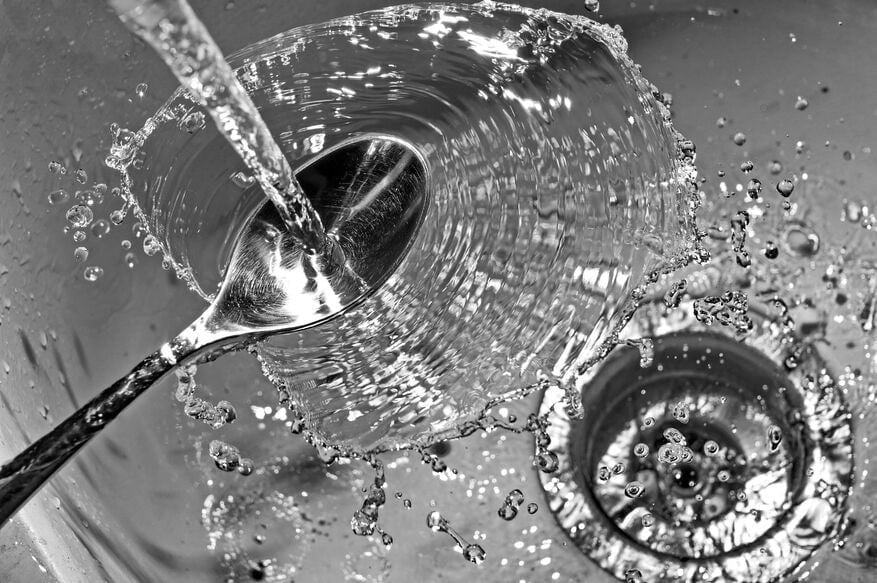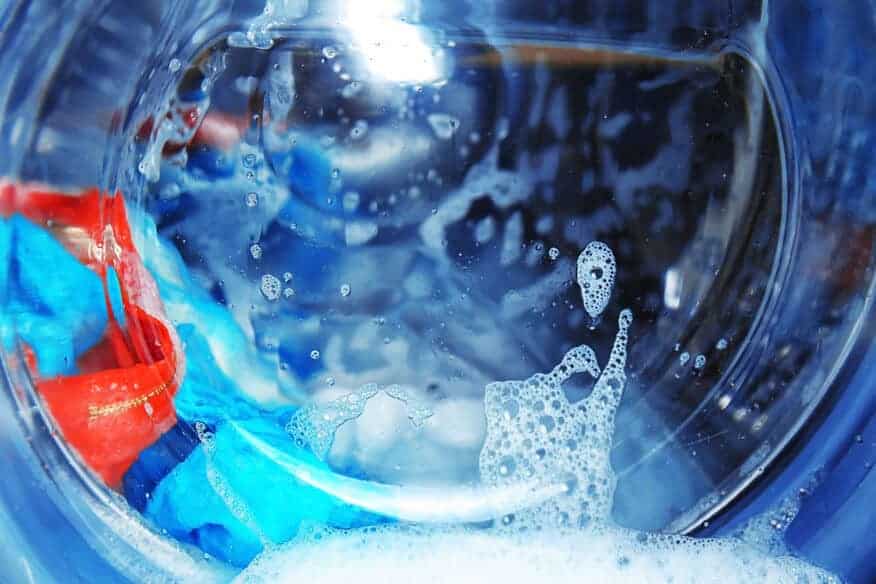Don’t underestimate the benefits of a water softener!
Hard water can damage your plumbing, water heater, and commercial equipment, costing you tons of money over time! Commercial buildings use way more water than residential properties, meaning hard water buildup can exponentially harm your bottom line. In this article, we’ll look at the many benefits of a soft water system and how you can use industrial water softeners to help your business, equipment, and peace of mind. But first, some basics:
A Primer on Water Hardness
When people refer to water as “hard” or “soft,” what do they mean? Whether your water comes from a well or a municipal water treatment plant, it contains naturally occurring soluble minerals. The volume of these minerals, specifically dissolved calcium and magnesium, indicates the water’s hardness. Any unsoftened water has at least some mineral content, measured in grains per gallon (gpg).
The hardness of your water will largely depend on your zip code. For example, Milwaukee tap water is 5-9 gpg hard, whereas outlying areas, like Menomonee Falls, have water between 23-34 gpg hard. In Indianapolis, the incoming water supply ranges between 12 and 30 gpg in hardness. The harder your water, the more significant the benefits of a water softener can be!
Not only do these minerals affect water quality, but they can, over time, build up as limescale or calcium. Soap scum is a result of hard water mixing with soap. Soap scum leaves behind a film on washing equipment, showers, tubs, and more. Because the minerals in water react with cleaning agents, the ability to lather and clean is reduced with hard water.
On top of that, washing your hands or consuming hard water can affect your health. If your business involves dishwashing or cleaning, hard water can have damaging effects on your staff’s skin.

How Does a Water Softener Work?
Commercial softeners work by stripping the minerals out of your water. Once hard water enters your property through water treatment pipes or a well, it will travel to the water softener. At that point, the negatively charged resin beads inside the tank will attract and hold the positively charged hard mineral ions to remove them from the water, a process known as “ion exchange.”
Then, the softened water leaves the tank and flows throughout the plumbing in your buildings – whether that’s apartment complexes, restaurants, car washes, salons, or other retail establishments.
The Regeneration Process
The sodium and magnesium ions on the resin beads are exchanged for the hard minerals in the water. To ensure an uninterrupted supply of soft water, the resin beads must be rinsed regularly to remove the mineral buildup so they can “recharge” and continue collecting the hard water minerals.
Salt is added to the resin tank with the softener to create a strong brine. The brine flows through the tank to rinse the beads and add more sodium while removing the hard water minerals collected over time. This process is known as the water softener backwash cycle.
The backwash is flushed from the brine tank into a drain. Then, the resin beads are again ready to collect the hard water minerals. The entire process takes about two hours, but that will vary based on the size of the tank and how hard your water is.
Using water during the water softener regeneration cycle is not recommended since it will cause your water heater to fill with hard water, leading to harmful buildup (and possible damage) in the equipment. For this reason, the regeneration cycle is usually scheduled to run overnight.
However, twin-tank water softeners solve this timing challenge with built-in redundancy. Twin-tank softeners eliminate any downtime, because they always have a second tank to continue the water softening process while one tank is “recharging”. Twin-tanks are especially helpful in 24/7 operations, like hotels and manufacturing.
Surprisingly, twin-tank softeners also use less salt and run more efficiently than single-tank water softeners. Because single tank softeners have a set regeneration schedule, they often end up recharging before the resin beads have actually reached their max capacity – they may only be at 50% capacity when the unit begins its regeneration cycle. With twin-tank softeners, the regeneration process is automatic based on resin capacity. The current softening tank won’t go into regeneration until it reaches 100% capacity, at which time the unit automatically switches to the second tank for softening so the first tank can recharge, maximizing efficiency and minimizing salt consumption.

Do I Need a Water Softener?
Are you wondering if you have hard water now? Practically any water that hasn’t been treated with a water softener will have some hardness. If your business runs on well water, you can safely bet you’re dealing with hard water. But even if you’re on city water, the facilities don’t focus on treating hard water systems. Almost 84% of the cities in the United States have hard or moderately hard water.
So, is a water softener necessary? Only if you like saving money and keeping your commercial appliances and equipment in good working order!
Most of the time, the benefits of a water softener in your single-unit home, multiple-unit complexes, or any variety of businesses far outweigh any negatives. And even if your water usage is below average, adding a water softener to a commercial water treatment system has the following advantages:
Extended Appliance Life
Untreated hard water wreaks havoc on appliances, pipes, and boiler systems. Over time, the mineral buildup can damage your equipment’s internal components, leaving you with costly repairs or the need for a replacement. Your industrial equipment naturally lasts longer when you actively remove those minerals from the water.
Reduced Maintenance
If you fail to treat hard water, you’ll spend more time and money maintaining equipment to remove the mineral buildup. Maintenance will be more frequent in general.
Increased Equipment Efficiency = Energy Savings
Mineral deposits will eventually build up to the point where they restrict water flow and decrease efficiency. That means higher energy consumption and higher utility bills.
Better Cleaning Efficiency
With softer water, you won’t have to use as much cleaning solution to handle even the toughest cleaning jobs. You can save money on your cleaning costs, energy consumption, and water usage, too!

Setting Up the Perfect Water Softening System for Your Business
To maximize the benefits of a water softener in your commercial space, you’ll want a water-softening system that’s the right size and specifications to fit your business’s specific needs.
Size is the crucial consideration when choosing a commercial water softener. Businesses that use a lot of water will typically need a twin-tank water softener to keep up with demand efficiently, while other facilities may find a single-tank softener perfectly sufficient for their needs. The softening capacity is based on factors such as:
- Softening Required: The amount of softening material needed to soften the water as measured in grains per day (also known as grain capacity).
- Flow Rate: How quickly the water flows through your buildings, particularly at peak operation. High flow rates mean more water must be treated to maintain high-quality water.
- Volume: The amount of water that flows through your building, particularly at peak flow rates.
- Water Composition: The amount of minerals (calcium, magnesium, and others) in the water supply.
Reliable Water Services ensures that the water heating and softening system we recommend for your business is precisely what you need, without waste or cutting corners. We can check your water hardness levels for free, and if further water evaluation is needed, we can also schedule a free chemical test, which tests your water for 40+ chemicals, including pH, iron, chlorine, and lead. These evaluations give you an accurate picture of your water (beyond hardness level alone), so together, we can ensure your business has all its water needs covered.
Of course, water can change based on the actions of a particular municipality, so it’s essential to retest every year and stay on top of the changes in your water.
The use of commercial water softeners is one of the best solutions for keeping your business’s equipment in good working order. A continuous flow of soft water will save you time, money, and headaches. Soft water is essential to your business and bottom line, so what are you waiting for? Reliable Water Services representatives are available 24/7 to meet all your commercial water treatment needs!